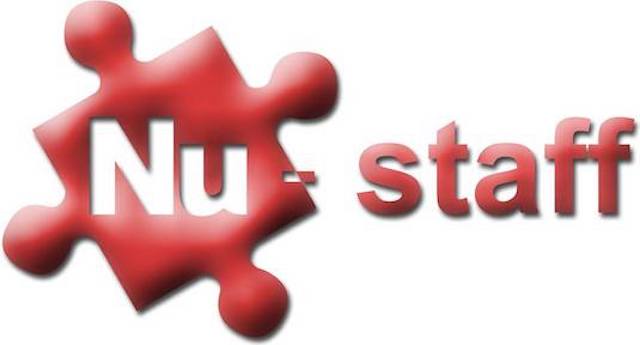High Staff Turnover? How to make sure your staff stick around
High Staff turnover? How to make sure your staff stick around
High staff turnover can be a huge cost drain on a company no matter its size. From advertising and recruitment costs to the expense of training and equipment, it can feel like you’re throwing good money after bad if your staff are only staying for a short amount of time. And that’s nothing compared to the unwanted effects it can have on team morale and productivity.

So if you’re struggling to get your staff to stay loyal, we’ve got a few tips to help.
1. Make a great first impression
Your relationship with each employee starts from your very first touchpoint with them, often during the recruitment and interview process. Make sure your conversations and interactions are consistently positive and show that you’re investing in the person for the long term. Help them to understand what’s great about the company and how they can expect to be treated throughout their employment with you.
2. Set realistic expectations
Expectation setting is important when it comes to building trust. Don’t promise the earth during the interview process if you can’t then deliver on it. If you will be expecting weekend rota working or on-call cover, make it clear exactly what that will entail and how you will compensate them for it. There’s nothing worse when you’re trying to build a good working relationship than hiding the less palatable parts of the job and ‘surprising’ your new employee with them later.

3. Help your employees to feel part of something bigger
If you want your employees to feel engaged and invested, it’s vital you help them understand how important they are to the success of your company. Explain how the part they play fits into the strategy of the business and make them feel that the work they will be doing is valuable and worthwhile. By helping newer employees to understand the organisation structure as a whole you will also be inspiring them to see possible pathways of progression for the future.

4. Reward good work
Recognising good work can be something that happens in numerous ways, it isn’t just about providing pay rises or cash incentives (although that can certainly form a part of your strategy). Instead, develop a culture of noticing and showing appreciation for the small things – the driver who goes out of his way to make that final delivery after hours or the customer service assistant who goes the extra mile for your regular purchasers. Of course, offering promotion opportunities to those who consistently meet and exceed their objectives is the perfect way of showing other employees the value you place on doing a great job.
5. Give employees flexibility where possible
If there’s one thing this last 18 months have taught us, it’s that as businesses we’re able to adapt and be more flexible than we previously might have thought. But it’s also meant that in many cases employees have come to expect some flexibility in what they’re asked to do. It may be that this is something that comes up in interview as candidates try to understand possible working patterns and locations, and it will be in your best interests to think about what you as a business can accept. Allowing new and current employees to apply for flexible working patterns will often help in terms of motivation, and may even mean they are less likely to leave for fear that they won’t receive the same level of flexibility elsewhere.

6. Focus on the development of your managers and team leaders
There are many benefits in taking the time and effort to develop your managers and senior teams, but it’s also a positive way to show those lower down the organisation that you’re serious about career progression. Not only that, you’ll be able to positively influence leaders to support your goals of higher retention and greater engagement across the board.
7. Show that mental health and wellbeing are important to you
There has been such a focus on mental health and wellbeing in the media recently that it’s almost impossible for businesses to ignore. By starting the conversation among teams, including articles in your company newsletters or even displaying posters in sites and offices, you can demonstrate that this is something that is on your agenda. And taking it a step further, there are very reasonable counselling services you can sign up to on behalf of your employees giving them access to impartial support whenever and wherever they might need it.
It’s a powerful way to say, “your health is important to us” and it speaks volumes about the type of company you want to be.

If you are facing recruitment problems , give us a call or email us to find out how we could help.


Recent Posts
2024: A Year of Growth, Change, and Big Plans for NuStaff
Nu-Staff Strengthens Leadership Team with the Appointment of Mark Shepherd as Sales Director
Nu-Staff Strikes Gold with New Non-Executive Director
Nu-Staff Completes Management Buy-Out with Support from Development Bank of Wales and GS Verde
Expanding the Talent Pool: Strategies for Employers
Tips for Recruiting Diverse Teams
Understanding the Right to Carers Leave: A Guide for Employers and Employees
Unlocking Potential: How to Attract and Retain Neurodivergent Talent
Top skills employers are looking for in 2024
5 Tips to Help You Kickstart Your Job Search in January
Why you should start your 2024 job search now